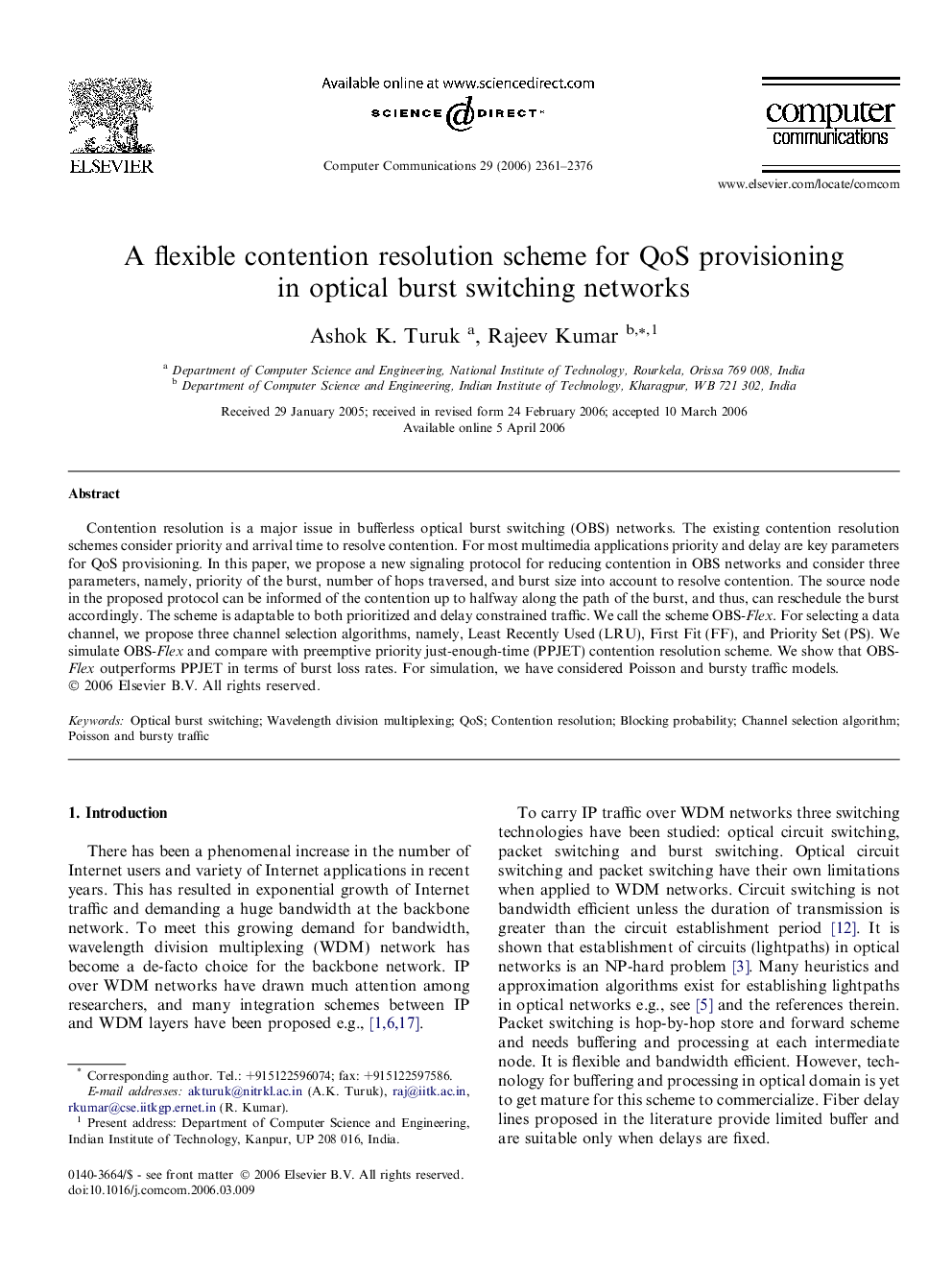| Article ID | Journal | Published Year | Pages | File Type |
|---|---|---|---|---|
| 449628 | Computer Communications | 2006 | 16 Pages |
Contention resolution is a major issue in bufferless optical burst switching (OBS) networks. The existing contention resolution schemes consider priority and arrival time to resolve contention. For most multimedia applications priority and delay are key parameters for QoS provisioning. In this paper, we propose a new signaling protocol for reducing contention in OBS networks and consider three parameters, namely, priority of the burst, number of hops traversed, and burst size into account to resolve contention. The source node in the proposed protocol can be informed of the contention up to halfway along the path of the burst, and thus, can reschedule the burst accordingly. The scheme is adaptable to both prioritized and delay constrained traffic. We call the scheme OBS-Flex. For selecting a data channel, we propose three channel selection algorithms, namely, Least Recently Used (LRU), First Fit (FF), and Priority Set (PS). We simulate OBS-Flex and compare with preemptive priority just-enough-time (PPJET) contention resolution scheme. We show that OBS-Flex outperforms PPJET in terms of burst loss rates. For simulation, we have considered Poisson and bursty traffic models.
